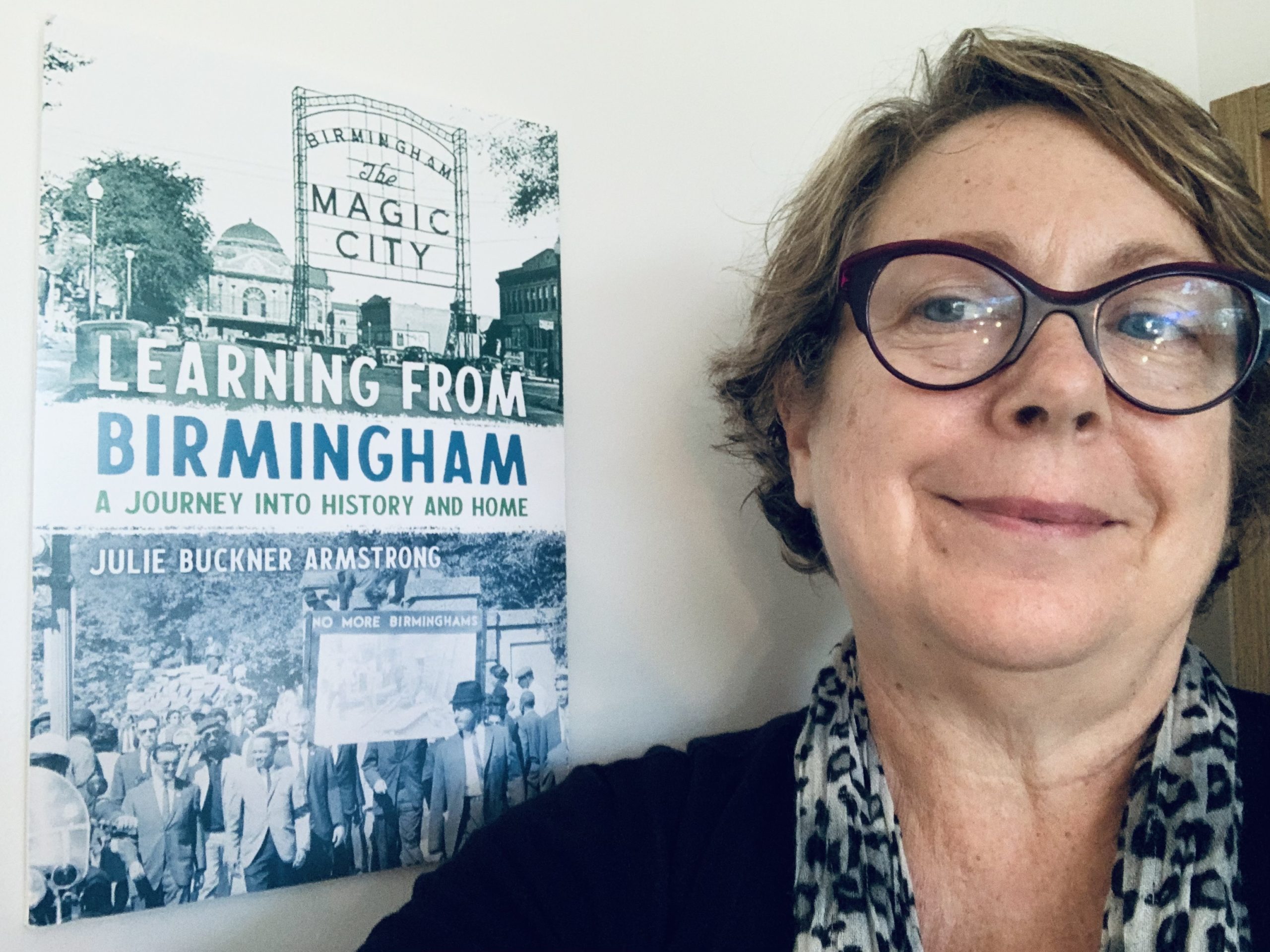Image courtesy of Julie Buckner Armstrong.
By Alisha Durosier
Conversations on the history of Birmingham, Ala., race, inequality and its complexities filled the storefront of Tombolo Books, on Wednesday, Sept. 6.
The local bookstore hosted an event discussing “Learning from Birmingham: A Journey into History and Home,” a book by University of South Florida St. Petersburg literature professor, Julie Buckner Armstrong.
Armstrong’s “Learning from Birmingham,” is a medley of personal stories — including her own, those of her white working-class family and residents of Birmingham — along with discussions on race, class, power and oppression.
It’s a “search for truth and beauty in Birmingham,” the book’s synopsis describes. “Among the discoveries she finds in America’s racial mirror is a nation that has failed to recognize itself in the horrific images from Birmingham’s past and to acknowledge the continuing inequalities that make up the Civil Rights Movement’s unfinished business.”
At the event, Armstrong sat down with NPR media critic, Eric Deggans to further discuss the book and its contents.
“People like to freeze a place like Birmingham in 1963, the dogs and the fire hoses and those iconic images. But the civil rights narrative is so much more complicated. There’s so much more nuance and I wanted to show that nuance through relatable stories…I wanted to do it through stories of ordinary people, especially ordinary people that I had a connection to,” Armstrong said.
Armstrong sought to use storytelling to draw readers in, it was the sugar, as Armstrong labeled it, and she hoped that it would leave readers with a little more, a “sneaky vegetable plate.”

“That sneaky little treat is the mechanisms of systemic oppression in the body of society, which is awesome,” Deggans said.
Armstrong initially wanted to write a book of essays focused on obituaries, and the stories behind the lives they had once lived.
“It turned out that so many of them were having these connections to the civil rights movement and whether they were family or friends or, you know, people and from the community that I lived, they all had some kind of connection,” Armstrong said. “I also thought, if you grow up in a place like Birmingham, it’s very hard not to have a connection to that history. Many people don’t acknowledge it. In fact, you’re taught not to,” Armstrong said.
Center Street, also known as Dynamite Hill, is a suburb in Birmingham that earned its name due to its regularly bombed streets. During the civil rights era, these frequent bombings would occur in response to black families moving into homes on Center Street. Armstrong and her family lived only a few blocks from Center Street.
“I talked to my family members about being there and they were old enough, you know, my mom and her sister and her brothers, they were old enough to have heard bombs going off. It was just a few blocks away. They were old enough to have known about that and they had no knowledge whatsoever,” Armstrong said. “And I think it’s because they didn’t want to hear it. You know, it challenged their belief in their security and safety.”
And thus, Armstrong had to reconcile with the racism and ignorance perpetuated by her loved ones growing and living in Alabama in the 60s.
“That was one of the things that I really had to reckon with is, you know, how do you depict someone that you love dearly, who raised you and you know, that they did bad things,” Armstrong said. “Eric, I did racist things. I grew up in Birmingham in the 60s. What do you think? I had to learn, I had to be educated into that and it was not the kind of education that came in school.”
Through “Learning from Birmingham,” Armstrong explored the role white people played in Civil Rights history, a role they often don’t talk about. “The role we played was not on the right side of history…so I wanted to show all facets of that, you know, from the egregious racism to the kind of casual racism that people don’t even realize they’re being racist. And my experience is as a white person, so that’s what I told.”
“Learning from Birmingham” is available online for purchase as well as Tombolo Books located at 2153 First Ave. S.
From 4:00 to 5:30 p.m. on Wednesday, Oct. 4, USF St. Petersburg’s Nelson Poynter Memorial Library will be holding a book talk for “Learning from Birmingham,” featuring Armstrong.



